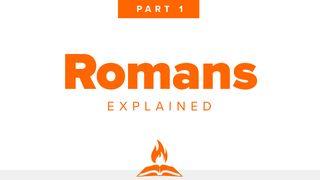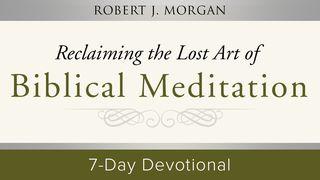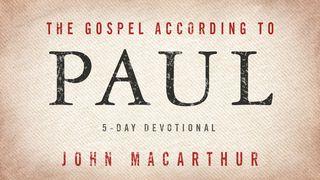Be Right: A Study in RomansSample

"Paul Affirms His Confidence"
Lastly, Paul links himself to the recipients of his letter in a third way.
3. HE AFFIRMED HIS CONFIDENCE (1:16–17)
What a testimony: “I am a debtor! I am eager! I am not ashamed!” Why would Paul even be tempted to be ashamed of the gospel as he contemplated his trip to Rome? For one thing, the gospel was identified with a poor Jewish carpenter who was crucified. The Romans had no special appreciation for the Jews, and crucifixion was the lowest form of execution given a criminal. Why put your faith in a Jew who was crucified?
Rome was a proud city, and the gospel came from Jerusalem, the capital city of one of the little nations that Rome had conquered. The Christians in that day were not among the elite of society; they were common people and even slaves. To think of a little Jewish tentmaker going to Rome to preach such a message is almost humorous.
But Paul was not ashamed of the gospel. He had confidence in his message, and he gave us several reasons that explain why he was not ashamed.
The origin of the gospel: It is the gospel of Christ (v. 16a). Any message that was handed down from Caesar would immediately get the attention of the Romans. But the message of the gospel is from and about the very Son of God! In his opening sentence, Paul called this message “the gospel of God” (Rom. 1:1). How could Paul be ashamed of such a message, when it came from God and centered in His Son, Jesus Christ?
The operation of the gospel: It is the power of God (v. 16b). Why be ashamed of power? Power is the one thing that Rome boasted of the most. Were they not the conquerors? Were not the Roman legions stationed all over the known world? But with all of her military power, Rome was still a weak nation. The philosopher Seneca called the city of Rome “a cesspool of iniquity”; and the writer Juvenal called it a “filthy sewer into which the dregs of the empire flood.”
No wonder Paul was not ashamed: He was taking to sinful Rome the one message that had the power to change people’s lives! He had seen the gospel work in other wicked cities, such as Corinth and Ephesus, and he was confident that it would work in Rome.
The outcome of the gospel: It is the power of God unto salvation (v. 16c). That word salvation carried tremendous meaning in Paul’s day. Its basic meaning is “deliverance,” and it was applied to personal and national deliverance. The gospel delivers sinners from the penalty and power of sin. Salvation is a major theme in this letter; salvation is the great need of the human race (see Rom. 10:1, 9–10).
The outreach of the gospel: “to everyone that believeth” (vv. 16d– 17). This was not an exclusive message for either the Jew or the Gentile; it was for all people, because everyone needs to be saved. “Go ye into all the world, and preach the Gospel,” was Christ’s commission (Mark 16:15). “To the Jew first” does not suggest that the Jew is better than the Gentile, for there is “no difference” in condemnation or in salvation (Rom. 2:6–11; 10:9–13). The gospel came “to the Jew first” in the ministry of Jesus Christ (Matt. 10:5–7) and the apostles (Acts 3:24–26). How marvelous it is to have a message of power that can be taken to all people!
Scripture
About this Plan

Martin Luther described Romans as "the most important piece in the New Testament." Soak your soul in it daily with Warren W. Weirsbe's classic commentary "Be Right: How to Be Right With God, Yourself, and Others."
More
We would like to thank David C Cook for providing this plan. For more information, please visit: http://www.dccpromo.com/be_right/
Related Plans

Renew: Romans 8 With Timothy Keller

Reading Romans With John Stott

7 Hebrew Words Every Christian Should Know

Romans

Live By The Spirit: Devotions With John Piper

C.S. Lewis And The Call To Create

Reclaiming The Lost Art Of Biblical Meditation

Goliath Must Fall: Winning The Battle Against Your Giants

The Gospel According To Paul
